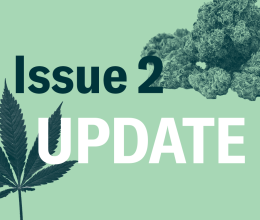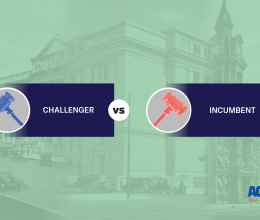Every day, people with felony and misdemeanor convictions are released from jails and prisons across the state, ready to start over and become upstanding, contributing members of society. For many of these individuals, reality kicks in and they come to realize that their punishment isn’t truly over. They try to find housing, employment, and educational opportunities, but are met with barriers known as “collateral sanctions,” or lasting penalties that exist beyond incarceration.
The majority of sanctions imposed by the criminal justice system serve a purely punitive purpose – they have no rational relationship to the crime committed, and actually increase the likelihood of the person reoffending. For example, a person found guilty of failing to pay child support, which is a misdemeanor, may have their driver’s license suspended. They are also barred from numerous types of employment and are unable to receive various professional licenses. These penalties only serve to make it more difficult to gain or hold a steady job, which in turn makes it more likely that the person will fail to provide child support again. A second failure to pay constitutes a felony, which comes with even greater collateral sanctions. Meanwhile, the child support continues to go unpaid, and at the end of the day, everyone loses.
Meet Minister Miguel Booker, an advocate for criminal justice reform:
On September 15, 2017, Minister Miguel Booker is participating in a panel discussion on collateral sanctions, hosted by the ACLU of Ohio. Other panelists include Judge Jim Miraldi of the Lorain County Court of Common Pleas and Captain Keith Sulzer of the Cleveland Police. In anticipation of this event, Minister Booker spoke with us about his experiences with the criminal justice system and barriers to meaningful re-entry.
Minister Miguel Booker knows from firsthand experience the barriers that are imposed on formerly incarcerated individuals who are just trying to do the right thing. In 1998, Minister Booker was sentenced to 30 months in prison on a non-violent, felony conviction. After serving his sentence, he enrolled in a local university’s marketing program, but had to put his education on hold in order to find a job that could pay the bills and support his six-year-old son. Unfortunately, he was only able to find employment at dead-end jobs, even after obtaining his welding license. Employers didn’t just want someone with an education and prior experience – they wanted someone with a clean background check as well. Almost every job application asked whether he had a criminal conviction, but none were concerned with how long it had been since he was convicted, or what he had done to turn his life around. Luckily for Booker, a local church was willing to give him a second chance, and he worked there for several years doing community outreach. Today Minister Booker is employed by a major soft-drink manufacturer, but continues to volunteer his time at the church, mentoring formerly incarcerated individuals who are still struggling to break down barriers resulting from a past conviction.
Roadblocks at every turn.
Many of Minister Booker’s mentees have experienced similar struggles when trying to find employment. In addition to background checks, employer bias, and bars on certain jobs, they face serious barriers to gaining the education or training that is required for many career paths. For example, people with certain drug convictions are unable to receive federal student loans or grants. Without this aid, educational programs are entirely too expensive and burdensome on an already struggling individual.
While Booker was lucky enough to have family to stay with after he was released, his mentees often struggle to find affordable housing – both public and private. Even if applications do not ask about prior convictions, many landlords do a background check before renting to an applicant, and turn away individuals who have been involved in the criminal justice system. As a result, many formerly incarcerated people experience homelessness or housing insecurity.
Hitting wall after wall when trying get back on your feet understandably causes people to lose hope, and the seeming lack of alternative opportunities can create a vicious cycle of legal trouble.
Reforming an unjust system
Raising awareness and eliminating unnecessary collateral sanctions are essential steps towards a more just system. However, making a real dent in the high recidivism rate requires even greater reform. Booker emphasizes the need for initiatives focused on prevention, such as mental health services, adequate job training, and effective placement programs, which prepare incarcerated individuals for a successful transition.
Ultimately, each person who comes into contact with the criminal justice system should be viewed as a human being, rather than a number. “No one wakes up and says: ‘I’m going to be a criminal today.’ It doesn’t happen like that,” said Booker, stressing the importance of taking the time to learn each person’s story, “There needs to be some sort of intervention to say: What happened? What led up to this?” After all, if we lock a person away and fail to address the circumstances that led them to break the law, there is a high probability that they will get caught in the same downward spiral again – especially when faced with barriers to employment, housing, and education at every turn.
If we really want to prevent crime and rehabilitate former offenders, we should offer more alternatives to incarceration, like community-based diversion programs. Depopulating jails and prisons benefits all people in our society.
Learn more
Moving from a system focused on punitive justice to one focused on restorative justice is not only the more compassionate response – it is necessary in order to make our communities safer and more economically prosperous for everyone. Join us on Friday, September 15 at 12 noon to learn more about collateral sanctions and criminal justice reform at Denied a Second Chance: Barriers on the Road to Re-Entry. Register today!









